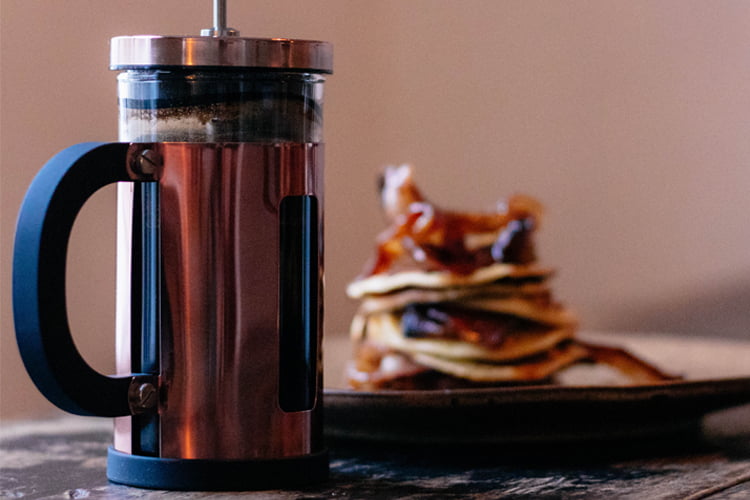Setting up a Coffee Shop – Our How to Guide
- Updated on: March 7, 2024
- Written by: Aimee Bennett
Aimee is a coffee enthusiast and has worked in the coffee industry for years. She sources coffee beans from around the world and her coffee journey began in… (read more).


Have you ever wanted to set up or run your own coffee shop and wondered just what that challenge would involve?
Perhaps you have a real passion for trying out new coffee flavours from around the world and sharing the best with friends and family.
Maybe you’ve always wanted to be your own boss and you think that having your own coffee shop would be a great way to achieve that.
Or perhaps you love the idea of talking and interacting with different customers every day as you provide them with a friendly, professional service.
A coffee shop could be the perfect option!
Running a successful coffee shop isn’t easy but it can be incredibly rewarding. You’ll gain personal confidence and business experience, benefit from knowing that you’ve created value and made people happy, while hopefully earning some money along the way!
But there are many different aspects to running a coffee shop business that you need to consider in order to have the best chance of success when setting up your own company and this article will take you through as many of them as possible.
Think of this as a quick and easy how to run a coffee shop for dummies! Let’s dive in.
Your coffee shop business model & Set up
The first task is really to decide what sort of coffee shop you want to be, or in fact whether you want to actually be a ‘shop’ at all!
It is possible to set up a coffee shop in many different ways; essentially all we are talking about is a way of giving customers coffee and a way of getting paid for it – everything else in the business model is optional.
Here are a few different ways that you could operate:
A community coffee shop – run on a for-profit or not-for-profit basis, a community shop could be owned by many different stakeholders and/or operate on a donations model. It can also work in partnership with an existing business or organisation, particularly if that partner shares the community-run values (think libraries, student-run university businesses, charity or co-op shops etc.) This is a great inclusive option if you have a group that can help.
A pop-up or mobile coffee shop – a temporary coffee business that can move locations and has little in the way of customer services (e.g. seating, toilets, wifi etc.) or additional products. A low-risk and low-cost option for starting out.
A permanent shop – this could be run as a cafe, a themed destination, or a basic high volume/high footfall coffee shop. This is probably the model most people are familiar with and there are still a whole host of ways in which you can be creative about your business within it.
A subscription and delivery business – if you intend to serve a large number of very local clients who may want to purchase on a delivery or subscription basis, this could be an option for you. Perhaps your customers could be 50 local companies who you can deliver ‘coffee runs’ to on a daily basis for example – think about the opportunities and value that can be added through subscription.
We have also previously written about coffee shop business models on our blog so take a look at the different options available to determine what will work best for you.
Also remember that you can tweak and evolve your model at any time. There have been plenty of examples of entrepreneurs that start out with a simple mobile cart, run some pop-up stalls at events and food markets and then progress to opening a small shop.
But none of these business models are free to set up of course!
The cost of setting up and running a coffee shop
Ah yes . . . the money. Unless you have been left a fully stocked shop as part of an odd inheritance or some strange competition, you’ll need to spend something to set up your coffee shop business.
There are certain one-off and fixed running costs for a coffee shop that you will need to take into account in business planning. These cover areas such as:
- Permits, licenses and insurance
- Business administration and accountancy costs
- Stock and logistics – both for consumables and equipment
- Rent, electricity, water, gas and similar costs
- Entertainment for customers such as music and wifi
These costs will depend on where the business will be based.
For example, the costs of running a coffee shop in the UK won’t differ too much from the rest of the world, relative to the regular costs of licenses, stock and premises in the country. The coffee market in the UK is very robust; 95 million cups of coffee are drunk every day and the competition for this business affects prices.
Once you have your business model sorted and a clear idea of the initial costs, you need to determine whether or not you’ll need money to set up the company.
Financing a coffee business set-up
If you need some initial capital to get your new coffee business off the ground you’ll need to look into financing options.
You might have enough saved up or be able to borrow from willing family and friends (which can be a minefield itself as you probably know!)
Other options, depending on the amount of capital required, could include;
- A bank loan (quite risky)
- A second mortgage (moderately risky)
- Maxing out credit cards (very risky)
- Crowdfunding
- Investment – on an equity basis for example
- Local/regional funding support
There might be other solutions in your area that you could access, depending on the type of company you intend to build. This could also determine where you choose to set up, your staff and other key business decisions.
What else to consider when setting up a coffee shop
Once you have your overall business model and financing in place, you are well on the way to launching your very own coffee shop. But there are still a number of other decisions to make:
Location
Next let’s think about where exactly your coffee shop will be based. A coffee shop needs at least enough space to store ingredients, make your beverages and get paid for them in order to operate properly.
There may be a few different ways to look at location depending on your chosen business model as we discussed above. But even the most mobile pop-up cart setup will need some physical space to run the shop and to store everything when not in use.
Your choice of location might also be determined by logistics. Coffee itself is relatively light and easy to transport but other ingredients such as fresh milk and cakes need to be delivered on a different timescale.
Staffing
If things go well, sooner or later you’ll need to get hiring.
Tell friends and family that you’re on the lookout for employees needed to run a coffee shop and put a sign up at your business in case your customers can refer you to someone.
Obviously try to look for someone with good experience, but remember you’re competing for staff against giant coffee chains so you need to emphasise your differences.
Your brand and style
One of the great things about small consumer businesses like coffee shops is the potential for building a truly unique brand.
You don’t need to try and out-Starbucks Starbucks – they’ve been doing it longer and have more money than you do, so it’s probably not the best idea. Think about what you could become known for and why people will buy coffee from you as opposed to an alternative shop.
A coffee shop needs to provide a great experience (as well as great coffee). You could be selling beautiful cups of the best steaming liquid gold, but if people aren’t having a nice time, they won’t be back in a hurry.
To build your brand think about how other companies make you feel when you interact with them. What businesses do you love? What do you tell your friends about? What would you like people to say about you when you aren’t in the room?
Think of the brand as the one-liner that people use to refer to your business:
- Oh yes I know CoffeeShells – that coffee shop with the pet tortoises on the window sills.
- Have you heard about Coffeeman Sam? It’s a pop-up coffee cart made from an old fire engine!
The more memorable yet genuine it is, the more people will spread the word. And if you give them a good experience, and a great coffee, when they arrive, you’ve done your job well!
Admin and taxes
Yes, we can’t avoid this in business I’m afraid! There’s no need to go into this in too much detail here, but be sure to check what rules and regulations you need to adhere to.
Look into advice on tax and administration requirements shared by government sources, such as this interview with independent coffee shop owners.
Sales and marketing
How will you get people in the door?
Building your customer base is one of the biggest challenges that you will face – get this right and everything else will be a little bit easier.
There’s no one task or activity that will make or break your sales and marketing activity, but everything (from your cups and furniture through to the quality of your Facebook and Twitter game) plays a part.
Be strategic and don’t over-commit to marketing activities at the expense of serving customers and providing a great experience.
Suppliers
Who will you buy coffee and other products from? How will the products be stored and delivered? What contract terms will you work on?
These are the sort of questions you will need to answer when developing your supplier network.
Personal relationships are important here but also don’t be afraid to drive a hard bargain when you need to make the finances work out for your business.
In conclusion
A lot of people have asked us over the years how hard is it to run a coffee shop?
The truth is that isn’t easy, like setting up any business, but it is a straightforward type of company to build if you have a clear vision in mind.
The demand is there, the suppliers are eager to help and the different options for business models, brand, location and premises mean you can really stamp your own personality on the company.
The best way to find out if you have what it takes is to try it. To really learn how to run a coffee shop training will help, but direct experience is better.
Good luck if you take the plunge – and let us know how you get on!





